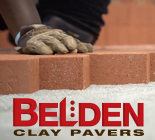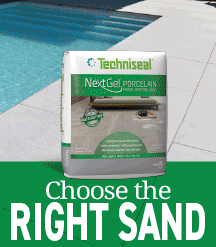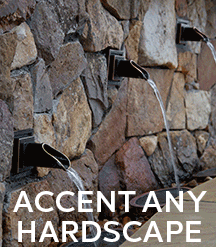Articles written by guest contributors

Bill Gardocki
Permeable pavers ready for residential
By Bill Gardocki, Interstate LandscapeWhen most people think of permeable pavers, they think of commercial applications. Well, I don’t do any commercial work. But, over the past 3 years, permeable pavers have become a big player in my tool box of options for clients.
We recently completed our 30th permeable paver residential installation. Had I not been able to supply the storm water management solution that permeable pavers provide I would have had to walk away from most of these jobs.
It's the law
Here in New Hampshire, we have a very strong and well-enforced law called The Shoreline Protection Act. This law was enacted to protect the state’s lakes, ponds, streams and rivers as well as oceanfront beaches, marshes and waterways.The law in one way or another limits the installation of impervious surfaces that are within 250' from a body of water's high water mark. I often go to 10,000 sq ft homes on the state’s lakes and have to inform the homeowners of these restrictions. There can be no impervious surface larger than 150 sq ft within 50' of the high water mark. Our clients building these McMansions don’t want to hear about the issues; they just want solutions. Enter the permeable paver.
New options
Today's permeable pavers are an attractive option for homeowners, and not just because they solve storm water drainage issues. They look good too. Can you remember back just 5 years ago when our only permeable option was the big rectangular 80mm pavers with huge lugs on the sides? That look was great for parking lots and streets, but not the most attractive for a residential patio or driveway.Today, all of the major manufacturers have jumped on board to create attractive residential-friendly permeable pavers. The newest area of the outdoor showroom at our shop is an 800 sq ft installation of permeable pavers.
Education
The Interlocking Concrete Pavement Institute (ICPI) offers a permeable paver certification class called the PICP Installer Specialist Course. It is an intensive 1-day educational program with a certification exam at the end. I highly recommend this certification program to install permeable paver systems.The class includes topics on edge restraints, bedding and jointing materials, sub base and base materials, and maintenance. Several manufacturers have also hired me to teach a 4-hour permeable paver installation seminar for contractors that I developed 3 years ago. The main rule to remember is that every component used in a permeable system must be permeable. No sand, no stone dust, no processed gravel. Only clean, open-graded aggregate.
Permeable pavers are another tool to pull out of your pouch when looking for options. Check out the photos of typical residential applications I included with this article.
Bill Gardocki is the owner of Interstate Landscape Co., Inc. in Londonderry, NH. He has been installing hardscapes for over 30 years. Bill has taught over 75 classes as an ICPI and NCMA Certification Instructor. He also provides hardscape installation seminars to sales reps in the hardscape and softscape industry.
Look up Bill at HNA 2013 where he'll be teaching 2 demonstrations and an Advanced SRW class. Email Bill@InterstateLandscapeNH.com.

For this client the issue was water running down a steep asphalt driveway towards the garage doors. We installed a system that included underground pipes that connect to the home’s gutter drainage system that removes the water and carries it to a bio-swale along the property line. We also installed a heating system under the permeable paver bedding layer.
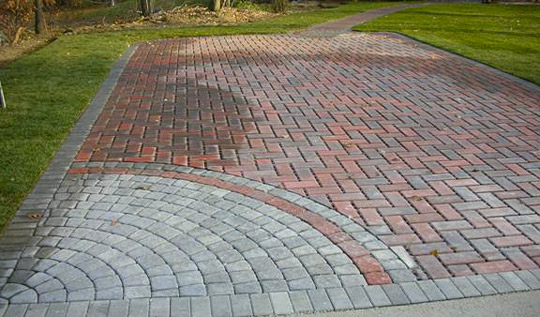
For this client the issue was water pooling and running towards the home foundation. We removed the asphalt driveway and installed a system that captures the water well before it gets near the home foundation. The water is piped to a bio-swale along the property line.
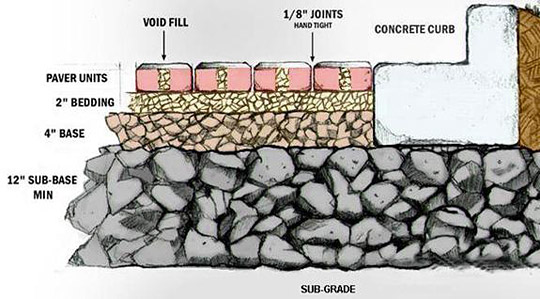
A permeable paver installation with Advanced Pavement Technology’s Bio-Aquifer Storm System requires a minimum 1’ depth of 3” open-graded rock, a 4” depth of 3/4" open-graded rock and a 1” to 2” depth of 3/8” bedding chips to serve as the setting bed.
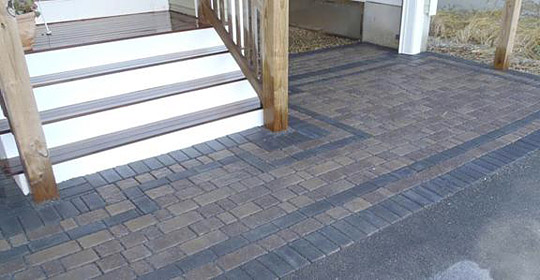
For this client living on a flood plain on the Massachusetts coast, permeable pavers replaced 3/4” open-graded stone between the home and the asphalt sidewalk. The homeowner was concerned because the stone was unstable for her elderly parents, and the town would not allow it to be replaced with an impervious surface. We also installed permeable pavers in front of the home and as a skirt into the garage.
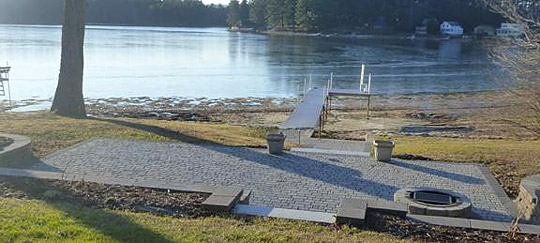
This 700 sq ft project took about 3 months to get final approval from the State Wetlands Board. The client wanted an area near the water for entertaining since the home is located 400' back from the shore. Permeable pavers were the only option the state would allow for the patio surface. Without permeable pavers, this project would not have been possible. Visit our website, InterstateLandscapeNH.com, to see a video of this job from start to finish.




